Are you in the market for a water softener? First, you need to know your water hardness scale for a water softener.
Maybe you’re wondering if your home water is too hard? Millions of Americans wonder about their water, and there are tons of myths circulating online about what hard water is and how to calculate their water hardness scale.
Understanding water hardness is essential when purchasing a water softener, but it’s also an exciting thing to know about your home (or your future home), as water hardness can impact appliance life.
Luckily for us calculating your water softener hardness number is a relatively easy thing to do. In this article, we’ll go into what hard water actually is, give some tips on how to tell if it’s too hard, and discuss what the ideal water hardness is.
Let’s get to it!
What Is Considered Hard Water?
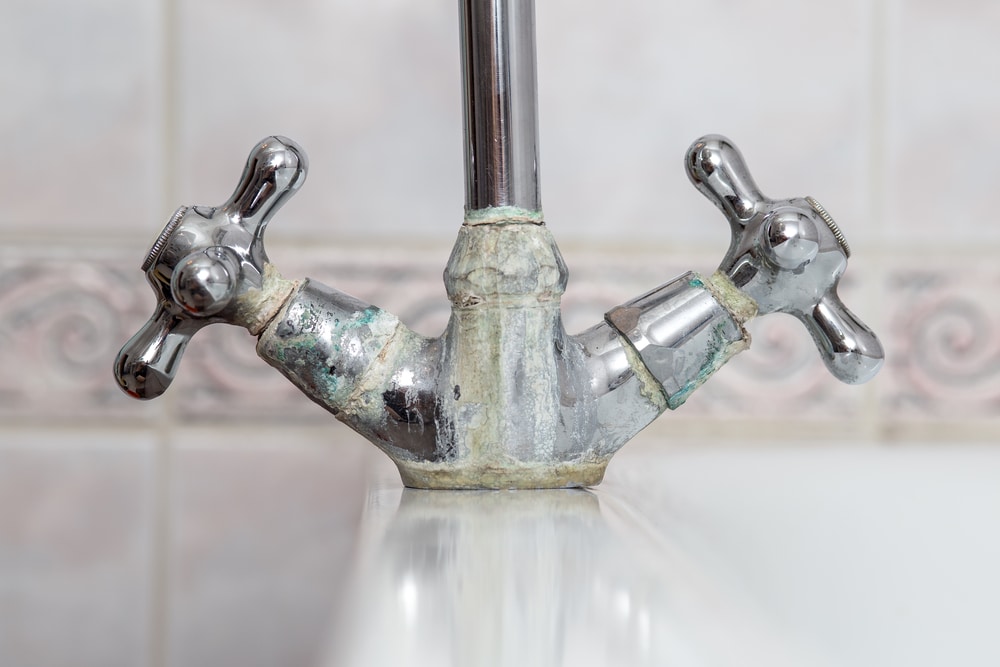
According to the US Geological Survey (USGS), hard water is any water with an excess of calcium and magnesium dissolved in the water.
You may understand the effects of hard water if you’ve ever washed your hands with hard water and used soap immediately afterward. If water is excessively hard, you can feel a thin film remaining on your hands. This film, called “soap scum”, is created from the reaction of high levels of calcium in the water with the soap.
Another place hard water leaves its mark–literally–is when doing dishes in a dishwasher. If you’ve ever done the dishes and taken out the glasses with spots or unsightly stains on them, this is a sign of too-hard water existing on your appliances.
Is Hard Water Dangerous?
No. Hard water is not dangerous. You can continue to consume hard water in your home straight from the tap and be completely unharmed.
Though hard water is not a health risk, it is something of a hassle when it leaves unattractive splotches on your dishware. It requires you to use extra soap to remove the product of the soap-calcium reaction in hard water.
Of special concern to homeowners and appliance manufacturers is hard water’s effect on appliances that run hot.
Dishwashers, coffee machines, electric tea kettles, clothes washers, and any other device that heats water and passes it through its machinery can all experience buildup of calcium carbonate. These solid deposits can reduce the longevity of your appliance and alter the taste of your water.
If you’ve ever heard of people running vinegar through their coffee machines every once in a while, hard water is the reason. When passed through your appliance, the vinegar easily breaks down the calcium carbonate to keep your coffee tasting like coffee.
Is Hard Water Good For You?
In some sense, it is. We human beings need calcium for our bones and magnesium for muscle and nerve function. Your hard water may be your source for these minerals, and this can be a good thing.
That said, though, there are other effective ways to get these minerals, and it may not be worth it to sacrifice the life of your appliances just for a few extra milligrams of calcium and magnesium a day.
Water Hardness Scale For Water Softener: How To Calculate
Many people who realize they have excessively hard water decide to invest in a water softener.
Understanding your water hardness is extremely important when considering buying a water softener because you don’t want to underpay and buy a water softening system that doesn’t cut the mustard. Simultaneously, you don’t want to buy a lion to deal with a mouse problem — water softener systems that process harder water cost more (sometimes a lot more).
Additionally, if you have a water softener with a water softener hardness setting, you need to know what to set it at.
The water hardness scale for a water softener is measured in three ways: in parts per million (PPM), milligrams per liter, and grains per gallon (GPG).
PPM is the most basic of the three measurements. PPM tells you the number of hard water minerals in a million drops of water. For example, if you have 1 PPM, one out of every one million molecules of your water will actually be a dissolved mineral.
GPG is also extremely common for measuring water hardness. A grain is a unit measurement leftover from the bronze age, when determining the weight of cereal grains was significant for ensuring fair trade amongst different nations. A grain, equal to about 64.8mg, is theoretically the weight of one cereal grain.
All that said, we still measure water hardness in grains, and a measurement in GPG essentially tells you how many grains (or quantities of exactly 64.8mg in weight) of hard minerals you have per gallon of water.
1 GPG is equal to 17.1 PPM, so to calculate your grains per gallon from parts per million, simply divide GPG by 17.1. If you have a measurement in GPG and want to get PPM, reverse this equation and multiply PPM by 17.1.
Simply put:
GPG / 17.1 = PPM
PPM * 17.1 = GPG
Luckily for us, 1 milligram per liter is approximately equal to 1 part per million, so that dividing milligrams per liter by 17.1 will also give you GPG.
How Can I Measure Water Hardness?
We’ve told you all about how to calculate water hardness if you already have a measurement of water hardness for your water. What if you have no numbers at all?
Measuring water hardness itself requires some special equipment. You can most likely find information about your water hardness level online or from your neighbors. If this isn’t a possibility, or if you live in a rural area, you can hire a specialist to come to check your water for you or buy a water hardness test kit online.
If using a testing kit, be sure you understand what the measurement indicates. Some kits provide you with a measurement of GPG and PPM, but others only show PPM.
What Does Water Hardness Number Mean?
A water softener hardness number is the number associated with your water hardness. Your water hardness number can be expressed in GPG, PPM, or milligrams per liter.

This map, sourced from the US Geological Survey, expresses water hardness number in milligrams per liter.
The question of when water is hard is a hard (no pun intended) one to answer. While some water softener manufacturers consider water hard at 1 GPG or more, the United States Geological Survey puts the number at which water is considered hard at 3.5 GPG.
That said, we call it the water hardness scale, so there are different tiers of hardness, as indicated by the colors in the map above. From 0 – 60 milligrams per liter (0 – 3.5 GPG), the USGS considers water soft. According to this measurement, 61 to 120 milligrams per liter (3.5 – 7 GPG) is moderately hard water, 121 to 180 milligrams per liter (7 – 10.5 GPG) is hard water, and 181 milligrams per liter and above (10.5 GPG +) is very hard water.
Obviously, terms mean nothing in the void, and there’s no single point at which water becomes hard. Water hardness, like most things in this life, runs along a spectrum from very soft to very hard.
Appliances will have a good, long life and soap scum should not be noticeable at 3.5 GPG or less. That said, at 3.4 GPG there are still many milligrams of dissolved minerals that can contribute to calcium carbonate buildup.
Related: How To Tell If Your Water Softener Is Working
What Is The Ideal Water Hardness Level?
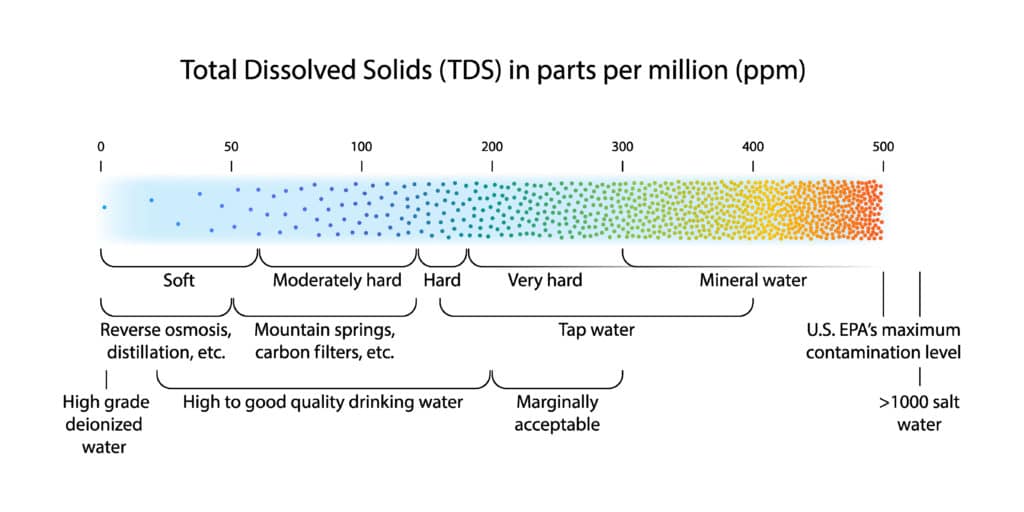
The ideal water hardness level depends to a large degree on your individual taste. The US Geological Survey tells us that water goes from being “moderately hard” to “hard” with a hardness of 121 milligrams per liter or above.
Similarly, the Minnesota Department of Health recommends anyone with above 7 GPG (~120 milligrams per liter) to soften their water to improve the longevity of their applications and the taste of their water.
Others online will recommend anyone with 3 GPG or above to get a water softener. Those who recommend getting a water softener at between 3 GPG and 7 GPG tend to make the claim that water at even 3 GPG of hardness will still leave splotches on dishes. There are also plenty of erroneous claims on the internet about moderately hard water drying out the skin and making the color of your laundry dull.
The ideal water hardness is best for you: if you don’t notice bad tasting water or encounter any of the symptoms of hard water (soap scum, splotchy dishes), then you shouldn’t worry whether your water is too hard. If, however, your water tastes bad or you notice calcium carbonate deposits in your oft-used appliances, you should consider treating the water.
Conclusion
The water hardness scale for water softener is a handy way to decide what kind of water softener you need if, in fact, you decide to use a water softener to treat your hard water. In this article, we’ve covered some facts about water hardness, discussed what is considered hard water, and made recommendations about ideal water hardness.
Remember that the most important measure of water hardness is your own senses! If you see mineral buildup in your appliances or taste water that isn’t right, you should definitely consider treating it.

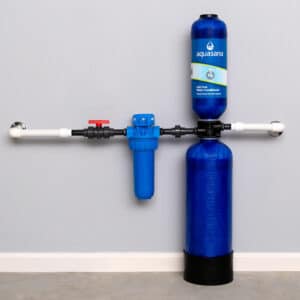
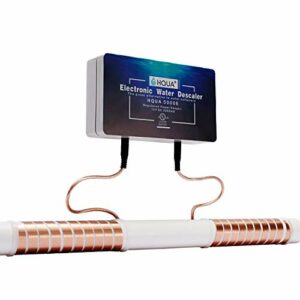
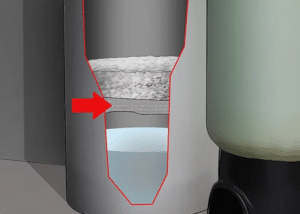
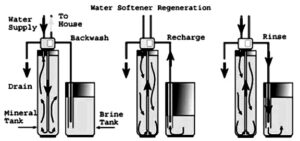
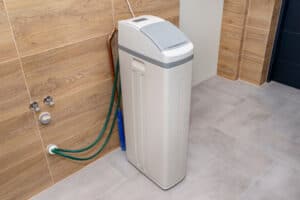
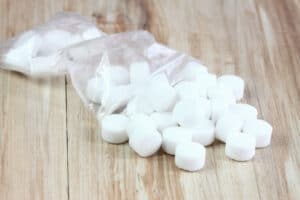
Is 272 ppm of calcium and 199 ppm of magnesium considered high in terms of water hardness? Will this hardness traditionally ;eave spots on surfaces such as glass?
Hi Jack, both of your ppm numbers are definitely in the hard water category. Your calcium number is especially high. I would expect that spots will be left easily on surfaces susceptible to this effect over time.